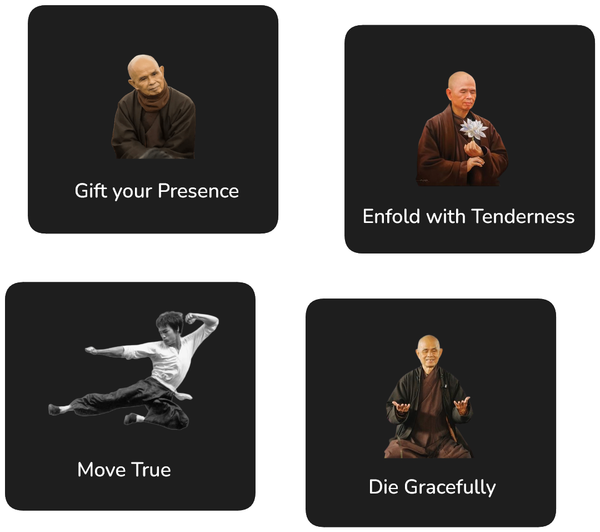Mind, Body and Soul

When we think of the mind, we often first think about our thoughts, feelings, beliefs and decisions. When our mind wanders, our thoughts jump from one topic to another. When we change our mind, we have decided to think of something in a different way than we used to or decided to do things in a different way.
The mind is usually seen as being not of the body and to be a different concept than the soul. Our body is the physical machine which keeps us alive; our organs, bones, blood vessels. This body, specifically our brain, enables our mind. Our mind, in turn, enables our soul; the soul which I define as the part of us which is of spiritual value, whereby spiritual denotes the dimension in which higher level thinking and our most pure and wholesome emotions fuse.
Rather than seeing mind, body and soul as separate things, we should see them as interwoven. Without our body, there can be no mind; without our mind, there can be no soul. (I am not aware of any evidence that we possess something like a soul disconnected from our body and it altogether seems to make little sense; so much of what we are, what we feel, what we think is deeply rooted within our brain, and measurably so; so how should a version of us exist without our brain?)
Notwithstanding this hierarchy, from body to mind to soul, we shouldn't think of the body as being inferior to the mind, and the mind being inferior to the soul. Each is a wonder on its own, and in combination they are a wonder beyond comprehension.
It should be no secret to any of us that our mind is a big mess. Our thoughts, emotions, decisions and believes are not static, clearly structured or well organised. They are fluid and difficult to formalise. Thus we often 'cannot make up our mind'. To complicate matters, we are designed to feel the illusion of control over our mind. We feel like we are making conscious decisions using thoughtful considerations; when in reality most of our decisions are made in the 'subconscious', a mysterious space which bridges our body and mind.
The subconscious may encompass the vast majority of our brain activity. It controls our body to keep us alive; by keeping the heart beating, filling our lungs with air, and by controlling a million different other things happening in our body. It also has been theorised that it is in the subconscious where our greatest capacity for creativity and many other higher functions of our brain lies.
As with many things in the biological and even more so in the psychological world there are no clear boundaries between the body, subconscious and mind. Take breathing for example: usually the subconscious and body take care of this routine activity. But we have the capability to take over with our conscious mind and control our rate and depth of breathing (to a degree). Many things we learn and master, like driving a bicycle or the grammar of a foreign language, will first occupy our conscious mind while slowly drifting into our subconscious as we gain mastery of the task.
"I think, therefore I am." is an untrue statement. You are far more than the sum of our thoughts. However, you may say: "I think, therefore my mind is." This, I think, is the closest we can come to a definition of our mind; it is our conscious thinking and those aspects of our memories and feelings which we can grasp with our conscious thinking. The mind is enabled by the body and the bridge between body and soul, the subconscious. Our mind is free of value; it just is the way it is made. Our soul is the potential or the realisation of our potential to become more than our body and mind would naturally become; to adopt good and wholesome values and follow through on them with our thoughts, words and actions.
Picture credit: ivanovgood





